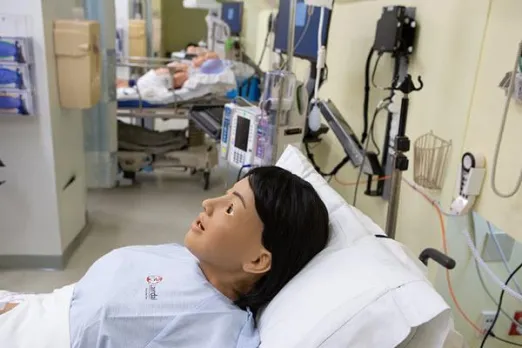New Graduate Nurse Residency Program
Work alongside experienced staff, and learn in a fast-paced setting at UMass Memorial Health – HealthAlliance-Clinton Hospital.
Why Be a Nurse at HealthAlliance-Clinton Hospital?
Everyone is a caregiver at HealthAlliance-Clinton Hospital, and that is especially true of our nurses who love taking care of our patients.
Our Nurses Love:
- Our great benefits
- Our flexible hours
- Our locations
- The recognition they receive
- The impact they have on the community

Preceptors Experienced in Practice
Our preceptors offer structured support needed to transition knowledge into everyday practice.

Supportive Environment
Our new graduate nurses receive support from managers, nurse education safety specialists, the Nurse Graduate Residency Team and peers from the cohort.

Passion for Nursing
Our nurses provide exceptional care for patients in an academic setting using the latest research and technology.
Frequently Asked Questions
The one-year program consists of weekly classes during the first 13 weeks and then monthly classes for the next nine months. Attendance is required.
You will work up to 40 hours per week while on orientation with their assigned preceptor. When you complete orientation, you will work your budgeted hours for the position you accept.
- Step 1 Application and Portfolio Review: Apply through the UMass Memorial Careers page and submit your portfolio. All portfolios are reviewed, and applicants are selected to participate in panel interviews.
- Step 2 Panel Interview: If invited, you will have a 30-minute interview with a panel consisting of nurse educators, nurse managers, human resources and members of nursing professional development. The panel includes time for you to ask questions.
- Step 3 Offers: Panels will make decisions on which candidates to make offers to and offers will be made to the candidates based on current and anticipated open positions.
There are many factors that affect where you will be placed for orientation and placement. The majority of new graduate nurses are placed in the acute care/medical surgical settings. Placement in specialty areas such as critical care, emergency department, maternity, labor and delivery, and pediatrics do occur but are limited.
Yes, positions 20 hours or more receive benefits.
You will orient on your assigned unit with a primary preceptor and back-up preceptors as needed. Orientation can start on any shift.
It is best practice for you to have one primary and one to two back-up preceptors for each shift you work on for orientation consistency. The unit’s nursing leadership team chooses the preceptors. Communication between you and your assigned preceptor is essential and encouraged to ensure the lines of communication open, and that feedback or concerns are shared.
You will be assigned a nursing professional development partner. Debrief sessions are held during weekly and monthly classes to allow new graduate nurses to share experiences and receive support not only from the residency faculty but their peers. The orientation team (nurse managers, nurse education safety specialists, and nursing professional development specialists) provide support during the weekly orientation meetings.
- Be confident and share your passion for nursing.
- Be proactive and ask someone to practice a mock interview with you.
- If invited to the panel interview, be on time.
- Be prepared with questions for the interview panel.
- For questions, email jessica.lopez2@umassmemorial.org.


